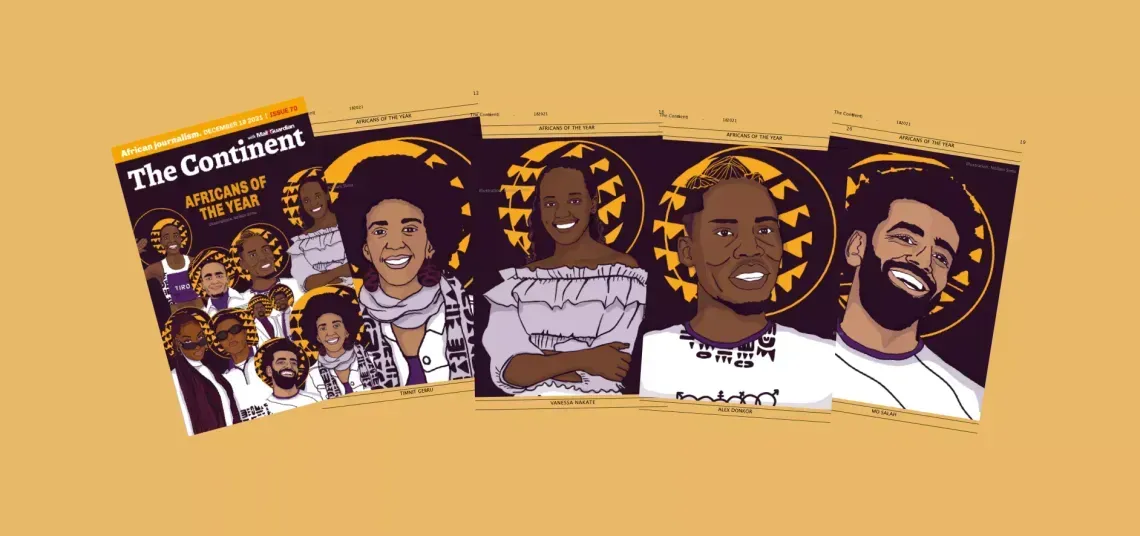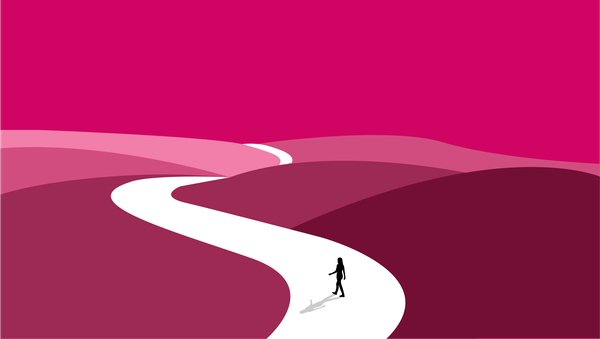I realised I was sharing a lot of Africa-related content in December. Likely this is related to research I’m doing for my talk on AI and human rights on January 20. But this also meant I was more receptive to the stories coming from The Continent, a weekly publication I subscribe to that showcases the best reporting from journalists across Africa.
I was especially taken by the final issue of 2021 and it’s summary of the year gone:
“As Africans, we had the extra spice of watching our expectations play out as Western countries finally sent us some of their hoarded vaccines (just before they expired – and then only as donations). The northern hemisphere is already talking about booster shots while fewer than 10% of Africans have had any sort of jab.
In public climate negotiations, the same countries spoke of a fairer and more just world while behind closed doors telling African countries to shut up and accept the status quo.”
Africa consists of 54 countries. I have lived in two and visited a total of ten. Of course I argue that we can not talk about Africa as one place, given its glorious diversity in culture, literature, language, animal life, architecture, innovation and more across its vast land from ocean to ocean. But what The Continent does really well is pinpoint the ways in which Africa as a whole is mistreated, exploited and cast aside on a whim. The pandemic has highlighted again and again how easily Western countries get away with empty promises.
There is power in unity and I am hopeful in seeing highlights of African leaders raising their voices in rare expressions of blunt frustration with what they express as “afrophobia” and “travel apartheid”.
This issue is about challenging biases and understanding how important voices are so easily ignored and silenced. By design.
Wishing you all the best from a cold and snowy Sweden. Attaching a photo from our walk in the forest earlier today.
Per
P.S. I want to read more so I’m starting a book club. After reading this newsletter you’ll understand how I came to choose the first book on the list. (update: the book club has since been discontinued)

When Africa meets design
At first glance, graphic design is rarely related to Africa. For cultural and historical reasons. The importance of the oral tradition and the recent dominance of European languages by colonialism led to the idea that African languages as a whole had no written forms or that they had been designed very recently.
www.grapheine.com
The Continent's Africans of the Year: Timnit Gebru
At the end of a tumultuous year for both her professional life and her country of ancestry, Dr Timnit Gebru has established an institute specifically to address the harms that artificialintelligence (AI) causes on marginalised groups.
mg.co.za
What Does It Mean to Decolonize Design? – Eye on Design
“Decolonization” is a word we’re increasingly hearing at design events, often being used interchangeably with “diversity.” It’s important to emphasize that while the terms are linked, they shouldn’t be confused. Diversity is about bringing more people to the table. Decolonization is about…
eyeondesign.aiga.org
Light And Dark: The Racial Biases That Remain In Photography
When Syreeta McFadden was young, she dreaded being photographed. Cameras made her skin look darkened and distorted. Now a photographer herself, she’s learned to capture various hues of brown skin.
www.npr.org
The Golden Ratio, a supposed Greek invention, may have African roots
The Golden Ratio, a hallmark of Swiss design and the foundation of everything from Helvetica to Le Corbusier’s meticulous architecture, may have been imported from Africa.
www.fastcompany.com
The many languages missing from the internet
English and a handful of other languages dominate the internet, but this is leaving indigenous cultures without a voice online. Now they are fighting back.
www.bbc.com
How Western companies undermine African democracy
As the election campaign in Tanzania reached a climax, opposition supporters began to notice something strange.
www.theafricareport.com
Lesley-Ann Noel on Pluriversality
Drawing on her own positionality as an Afro-Caribbean designer educated in Latin America, Noel shares philosophies that could guide a new form of liberatory, anti-oppressive and anti-hegemonic design education, research and practice. This form of design education would be grounded in critical consciousness, positionality, an emancipatory worldview, pluriversality and critical utopias. By sharing multiple worldviews and modes of practice, Noel hopes to challenge her audience to re-think both the definition and decolonization of design.

Falsehoods Programmers Believe About Names
A list of assumptions your systems probably makes about names. All of these assumptions are wrong. Try to make less of them next time you design a system which touches names.
www.kalzumeus.com
The world map that reboots your brain
I recently wrote this post to summarise the points I make in many of my talks. It really highlights how Africa’s size is so often misrepresented. Let’s revise our tools to help us get better results.
axbom.com
Raoul Wallenberg Talks #1
What does AI have to do with human rights? On January 20 I’m giving a short talk and participating in a panel discussion. The broadcast is free online, one hour long and you can find all the details in this post.
axbom.com
Mindful Book Club
I turned my project for reading more into a book club. Join in on the reading if you want. You can even participate in secret and not tell anyone. I call it “A reading project for everyone interested in human rights, universal wellbeing and a pluriversal future.” [Update: The book club has been discontinued]
mindfulbookclub.axbom.com
Quote
Desmond Tutu passed away on December 26 at 90 years old. His strong moral voice lives on if we listen to it.
"When the missionaries came to Africa, they had the Bible and we had the land. They said, 'Let us pray.' We closed our eyes. When we opened them, we had the Bible, and they had the land."
Svenska / In Swedish
Jonas Söderström: Här är min to do-lista till digitaliseringsministern
Jonas Söderström har författat en lista på sju punkter över vad Sveriges nye digitaliseringsminister Khashayar Farmanbar (S) borde ha högst på sin agenda.
www.dagenssamhalle.se
Ludditerna fick fel – men hade rätt | Torbjörn Elensky
1800-talets teknikförstörande ludditer framställs ofta som löjeväckande bakåtsträvare, men deras idéer är värda att ta på allvar. Inte minst i dag, då algoritmer och automatisering sätter sin prägel på såväl arbetsliv som människosyn, konstaterar Gavin Mueller i boken ”Breaking things at work”.
www.svd.se
Raoul Wallenberg Talks #1
Vad har AI med mänskliga rättigheter att göra? Den 20 januari föreläser jag och deltar i en paneldiskussion. Sändningen är gratis, en timme lång, och du hittar detaljerna i mitt blogginlägg.
axbom.se
Röntgentomten på Twitter
AI i sjukvården, en översikt av kunskapsläget:
AI kan avlasta (som en 4-åring ”hjälper till” med disken)
AI är säkert och pålitligt (som en 5-åring med en morakniv)










Member discussion